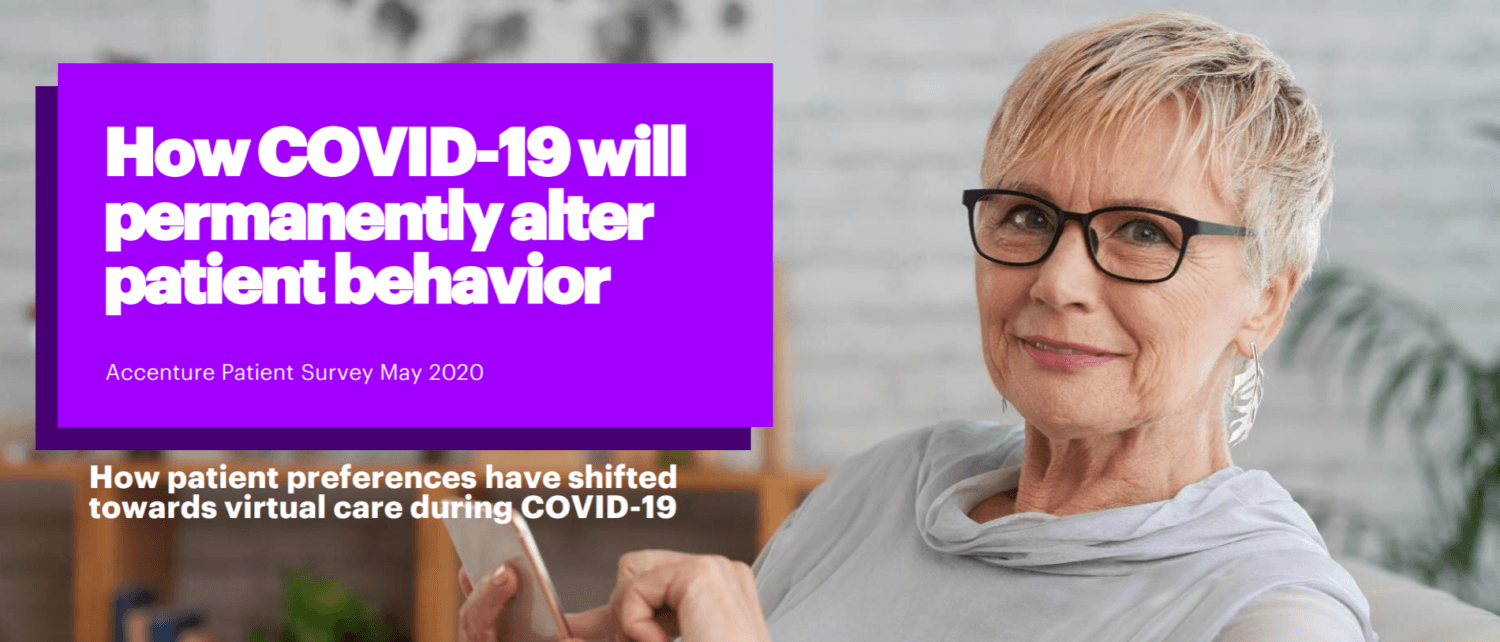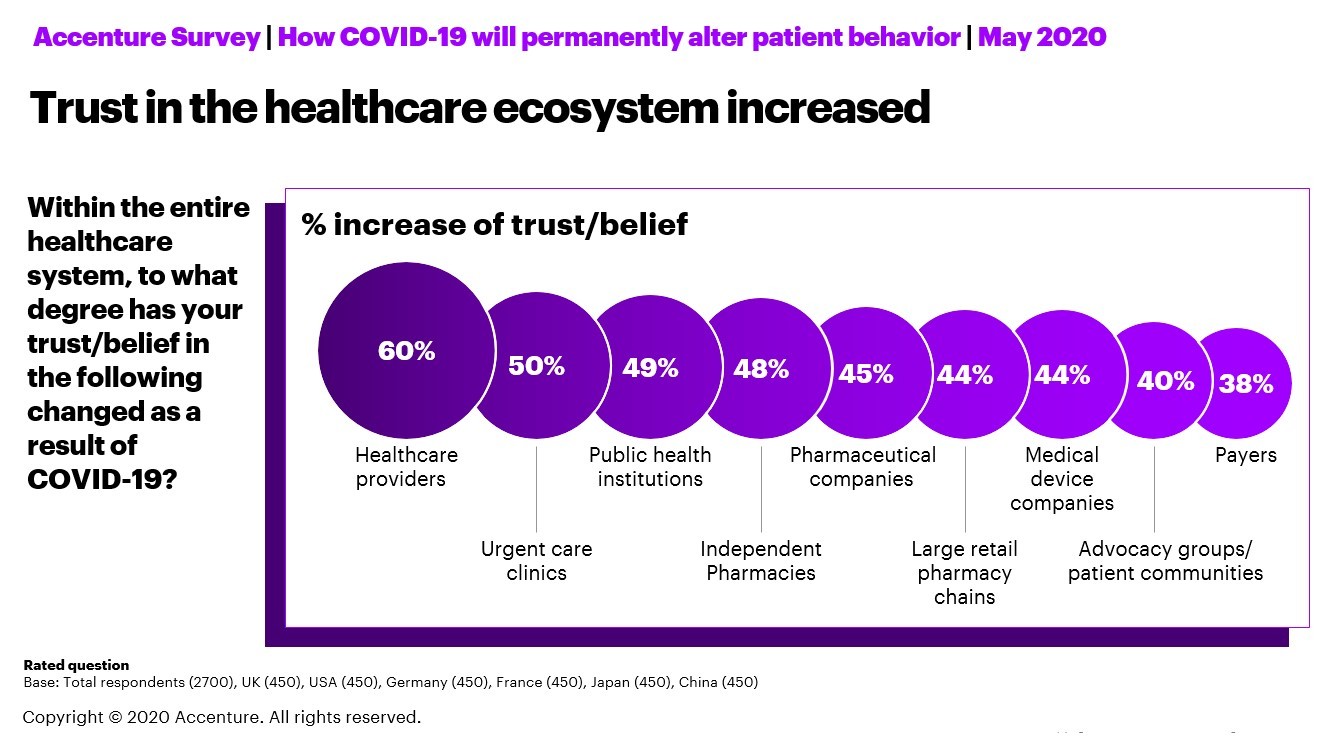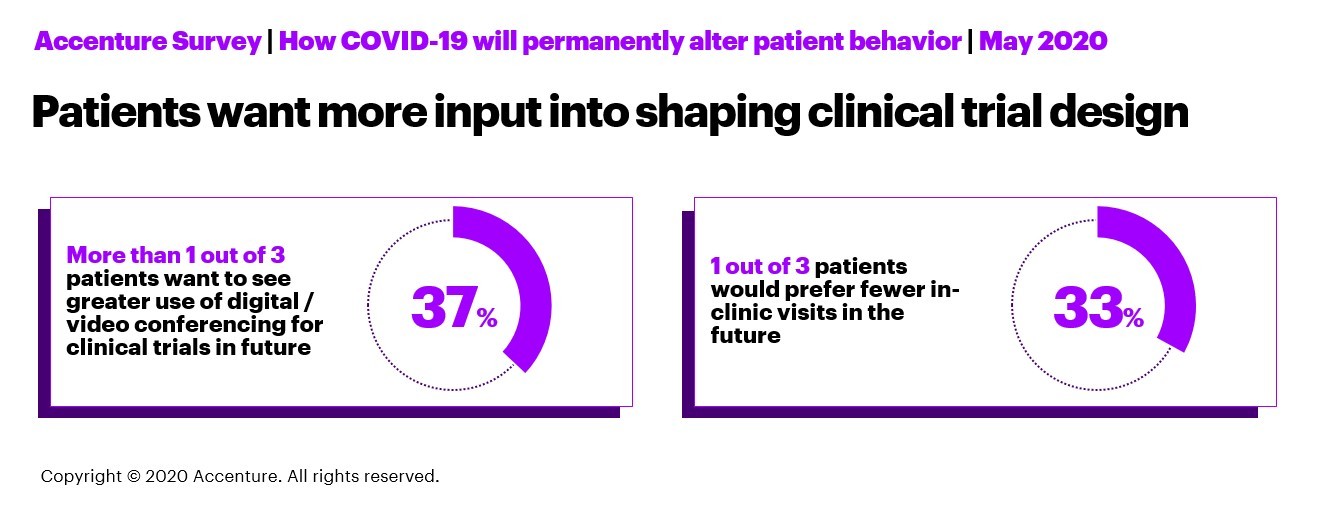
What You Should Know:
– The COVID-19 crisis has significantly impacted the patient care paradigm, and the ripple effects have altered patient behaviors and expectations, requiring a significant change in how life sciences companies engage with and support patients
– Accenture surveyed 2700 patients about changes in care during COVID-19 and found a major shift to virtual care, which patients embraced.
– Virtual care is here to stay and can be an integral part of the patient experience with health care providers and as part of clinical trials.
– With 70% of patients deferring or canceling treatment, virtual tools were widely adopted as an essential lifeline for continuing care.
The COVID-19 pandemic has permanently shifted patient behavior towards virtual care, according to a new survey from Accenture. The Accenture COVID-19 Patient Survey conducted in May across China, France, Germany, Japan, the U.K., and the U.S. asked 2,700 oncology, cardiology, or immunology patients globally how patient care has changed during COVID-19. The survey revealed patients have embraced virtual care and communications at very high rates as a result of COVID-19 and nine out of 10 reported the quality of care was as good or better than before.
Patients Chose to Defer and Change their Care
As restrictions came into effect, patients faced difficult choices about whether and how to continue their treatments. Many healthcare providers canceled appointments, and transportation options were shut down. Patients were afraid to risk exposure to COVID-19 by going to their healthcare providers for regular treatment, and many (70%) deferred or canceled at least some elements of their treatment.
But nearly half of all surveyed patients also started getting some treatment at home instead of going to their healthcare provider’s office and they began using virtual tools such as video conference calls, online chat, and apps. 1 out of 5 patients switched to a different therapy due to COVID-19, while nearly half considered making a change. Patients were concerned about how treatment might affect their risk of COVID-19, and about the method and timing required for specific treatments.
Sixty-three percent of those who used video conferencing said it was very good or excellent, an impressive response given 70% were using video conferencing for treatment for the first time. By using technology to support communication and care, healthcare providers were largely able to maintain or even improve on the patient experience.
Other key findings of the survey include:
Trust in the Healthcare Ecosystem Increased

Forty-seven percent of respondents said they received better, more personalized responses; 41% said quicker responses and 40% said it was more convenient to access through new communications channels.
In addition, the overall trust in the healthcare system has increased. Sixty percent of patients surveyed said their trust in healthcare providers has increased, and 45% said their trust in pharmaceutical and medical device companies has increased.
Virtual care helped keep some clinical trials going

Worryingly, many clinical trials were disrupted by COVID-19.
Seventy-seven percent of patients said their clinical trials were suspended or
delayed, which could have a knock-on effect on the speed in which new
treatments come to market.
However, for trials that continued, the use of virtual care was critical for
consultations, treatment, and monitoring. Consider that 61% of patients whose
trials continued used some form of virtual communication or care.
Using virtual technologies as a regular part of the clinical trial process would not only improve resilience to disruptions but would help to improve the patient experience.
Patients said they want to be consulted more, but they are currently far from the center of the clinical trial design process. As decisions were being made on how to modify clinical trials due to COVID-19, only 14% of surveyed patients were asked about what changes would work for them. This held true across all therapeutic areas and geographies.
“Increasing virtual communication and treatment options offers multiple benefits for clinical trials, as one-third of all patients in trials reported that even before COVID-19, they had difficulty making appointments or physically getting to clinics for treatment,” said Michel. “Patients want more video conferencing and fewer clinic visits, which would make clinical trials more convenient and accessible.”
For more information, the full report is available for download here.
